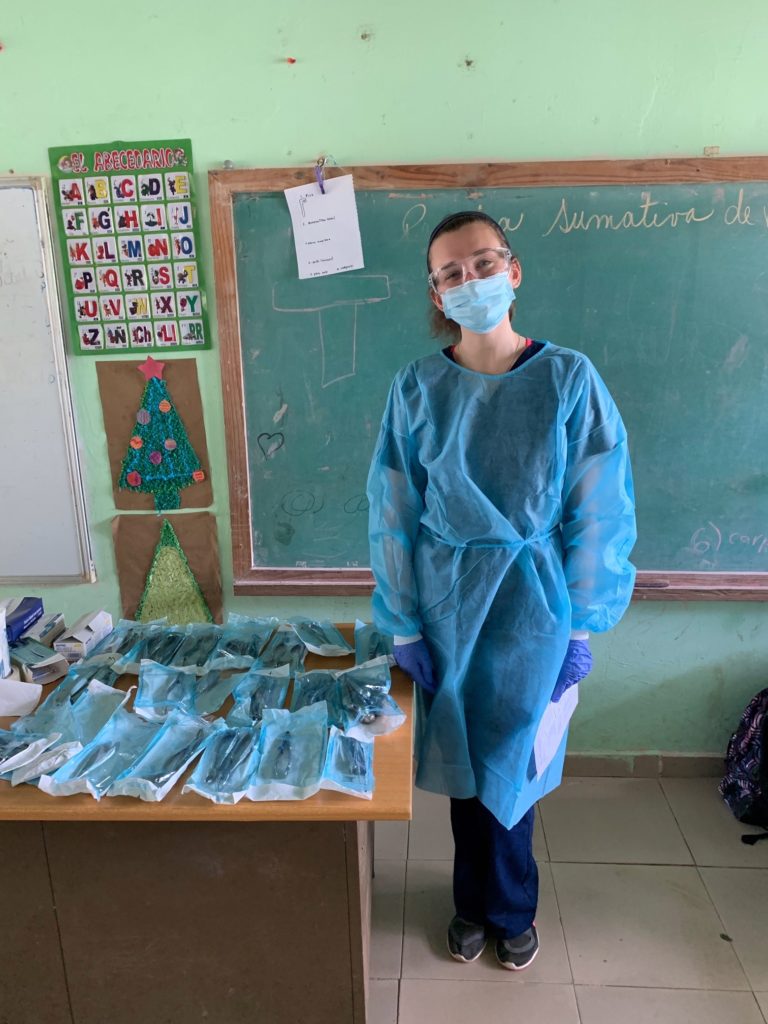Biomedical Sciences Major

The Biomedical Sciences major provides students with the knowledge and skills to be successful in a broad range of health-related fields, including medicine, dentistry, veterinary medicine, physician assistant, physical therapy, or any of the many other health sciences careers. Students who complete all requirements earn the degree of Bachelor of Science (B.S.) in Biology.
This major provides discipline-specific knowledge required for students to pursue graduate programs in the health sciences. It provides a thorough foundation in biology’s fundamental principles including organism function, cell biology, genetics, physiology and the research process. Command of these core concepts is necessary for students to understand complex biological problems and to apply their knowledge to health-related problems. Four health related natural science electives are required so that students can develop a strong understanding of the basis of human health. Additionally, students must choose one course on societal perspectives on health which will expose students to a variety of health care concerns and provide a framework for the students to understand and have empathy for their patients.
The Biomedical Sciences major also emphasizes skills that students need to be effective health care providers. The capstone experience focuses on clinical experiences that are necessary for students to gain perspective on the true nature of their chosen profession and required of all health-related graduate programs. Students can utilize their health-related internships, study abroad, or research experience to apply what they have learned and satisfy the beyond the classroom learning requirement.
For complete description of all courses offered by the Biology Department, please see UMW Course Catalog, Biology
Course Requirements
Forty (40) credits. These must include the following required and elective courses:
| Required Core (19 credits) | Credits | Frequency of offering* |
| BIOL 126 or Biol 132, Organism Function and Diversity | 4 | Spring |
| BIOL 260, Biostatistics and Research Design | 3 | Fall & spring |
| BIOL 340, Cell Biology | 4 | Fall |
| BIOL 341, General Genetics | 4 | Spring |
| BIOL 413, Human Physiology | 4 | Spring |
| Health Related Natural Science Electives (4 courses from the following – 2 courses must have labs) | Credits | |
| BIOL 301 (Anatomy of Chordates) or BIOL 384 (Human Anatomy) | 4 | Fall |
| BIOL 371, Microbiology | 4 | Spring |
| BIOL 406, Histology | 4 | |
| BIOL 410, Neurobiology | 4 | Spring |
| BIOL 412, Endocrinology | 4 | |
| BIOL 414, Exercise Physiology | 3 | |
| BIOL 415, Nutrition and Metabolism | 3 | Fall & spring |
| BIOL 430, Molecular Biology | 4 | |
| BIOL 432, Virology | 4 | Fall |
| BIOL 439, Developmental Biology | 4 | |
| BIOL 440, Biology of Cancer | 3 | Fall |
| BIOL 441, Immunology | 4 | Spring |
| BIOL 444, Bioinformatics | 4 | Spring |
| BIOL 451, Senior Seminar | 2 | Fall & spring |
| CHEM 211, Organic Chemistry I | 4 | Fall |
| CHEM 317, Biochemistry I | 3 | Fall |
| Societal Perspectives on Health Elective (1 course) | Credits | |
| SOCG 334, Medical Sociology | 3 | |
| SOCG 335, Global Perspectives on Health and Illness | 3 | Spring (odd years) |
| PHIL 226, Medical Ethics | 3 | |
| PSYC 100, Introductory Psychology | 3 | Fall & spring |
| ENG202D – Writing About Medicine | 3 | |
| Capstone (3 credit minimum – approved in advance by Dept Chair) | Credits | |
| One Research Intensive course (approved for Biomedical Science by chair) | 4 | |
| Independent Research | 3-6 | |
| Prerequisites | Credits | |
| BIOL 121, Biological Concepts | 4 | Fall |
| CHEM 111, General Chemistry I | 4 | Fall (limited seats in spring) |
| CHEM 112, General Chemistry II | 4 | Spring (limited seats in fall) |
| CHEM 212 (Biochemistry Only) | 4 | Spring |
| SOC 105 or 155 (SOCG 334 and 335 only) | 3 |
*Prevailing course availability. Exceptions may occur. Students should consult their academic advisors when developing their degree completion plans.